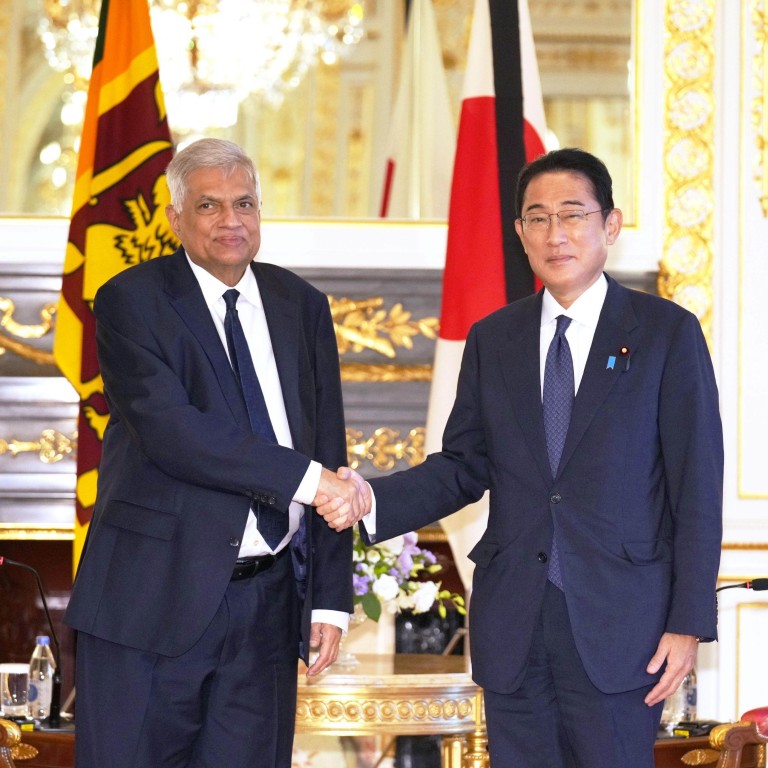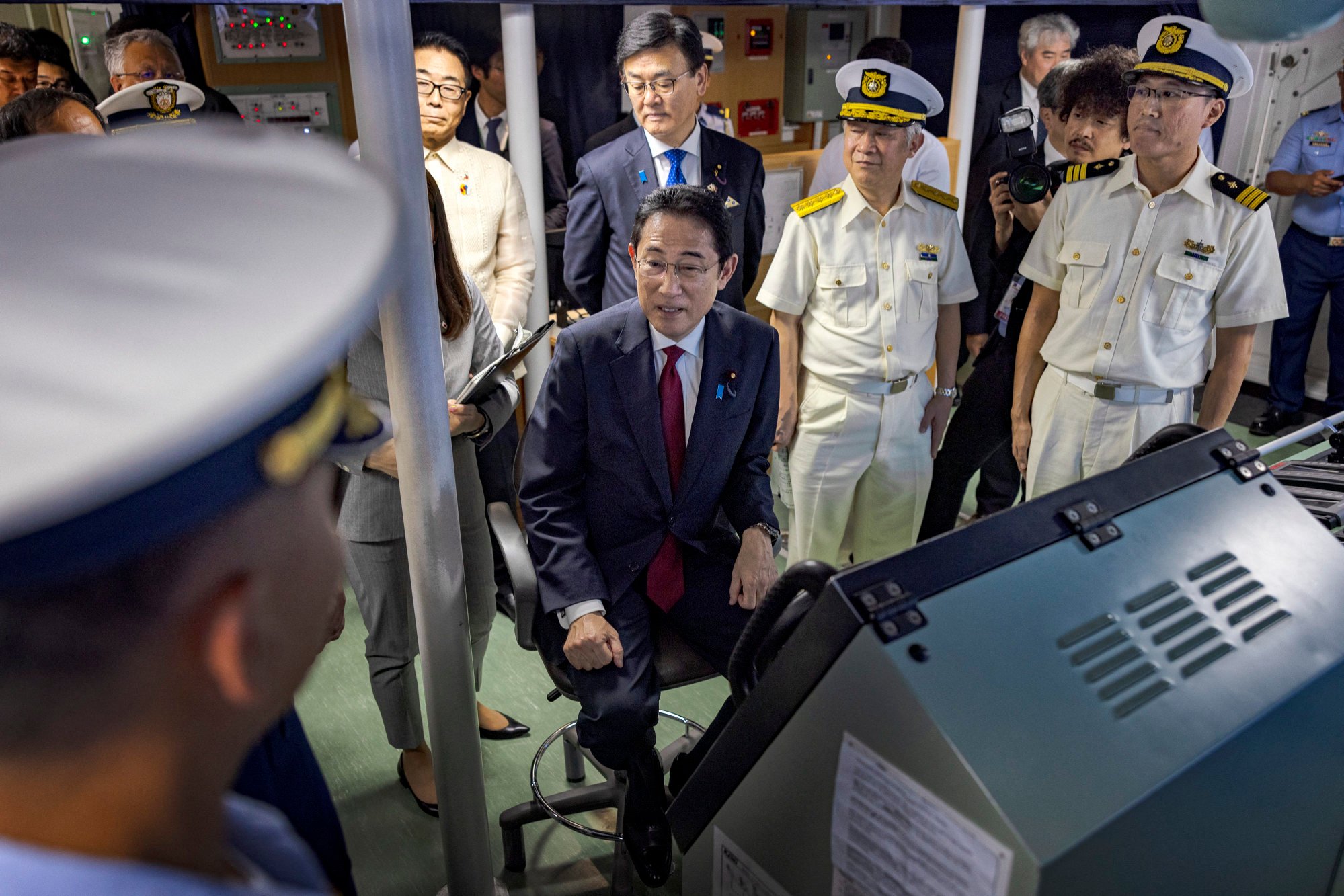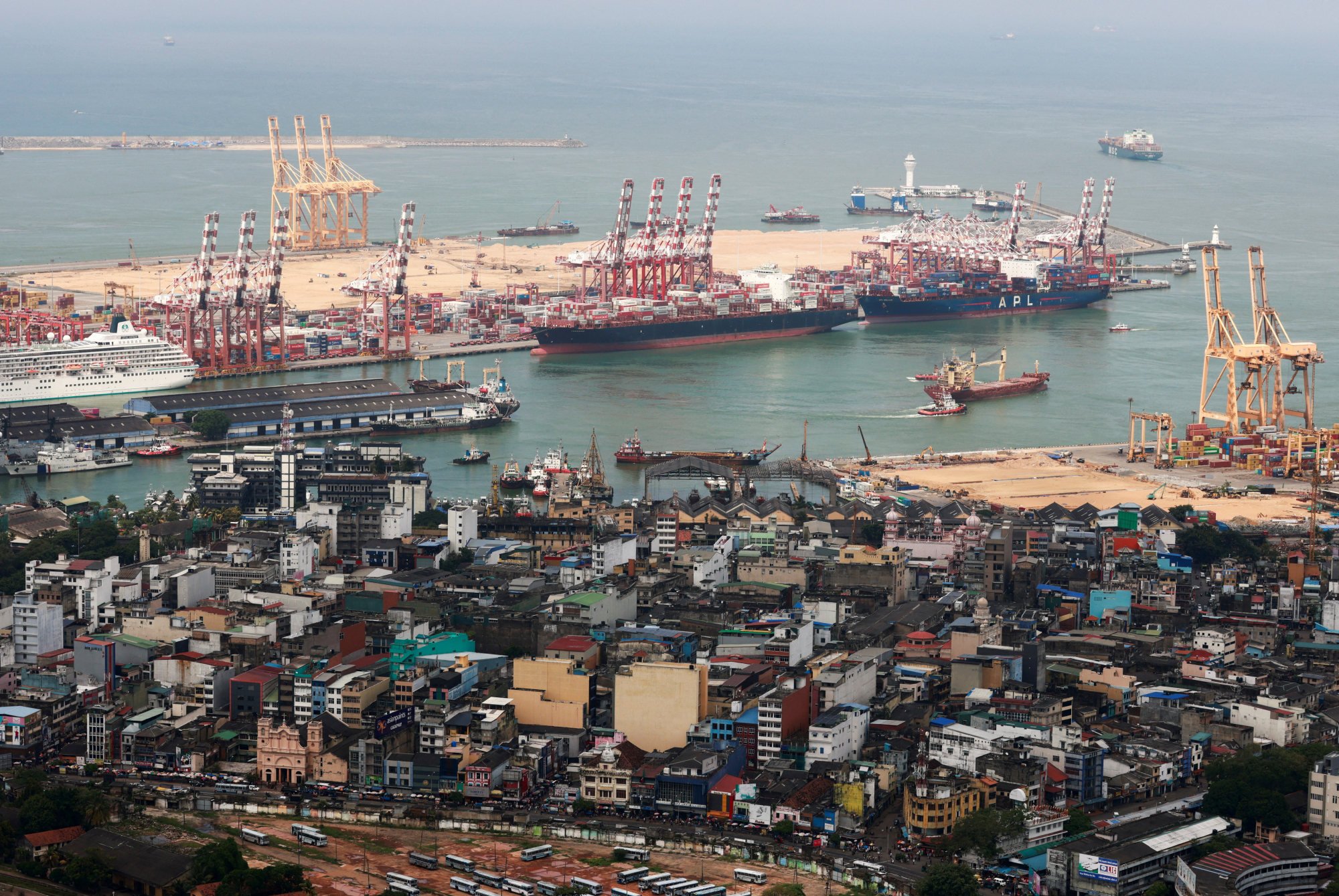
‘Ball in Sri Lanka’s court’ as Japan seeks to deepen ties in bid to counter China’s Indo-Pacific influence
- Sri Lanka’s 2020 decision to drop a light rail project financed by Japanese companies led to friction between the countries, amid Colombo’s pivot to China
- Japan has become more ‘astute’ in its approach to Sri Lanka, given its interest in a rules-based Indo-Pacific region and countering Chinese influence in the Indian Ocean
Sri Lanka’s vital location in the Indian Ocean and Japan’s rivalry with China over Indo-Pacific influence are strong incentives for Tokyo to mend bilateral relations with Colombo strained by the cancellation of a major infrastructure project, experts have said.
“Japan’s prime minister, foreign minister and finance minister have reached out to Sri Lanka in a consistent manner in recent months,” said George I.H. Cooke, a historian and academic who formerly worked for Sri Lanka’s diplomatic service. “The ball is in Sri Lanka’s court to deepen the connectivity in a meaningful way.”
In 2020, the Gotabaya Rajapaksa regime in Sri Lanka abruptly halted a US$2 billion light rail project (LRT) – proposed as a solution for Colombo’s congested roads – financed by Japan International Cooperation Agency (JICA), citing the project’s high costs as the reason.

The decision led to diplomatic friction between the two traditionally close countries that continued to grow amid Sri Lanka’s deepening economic crisis.
Since Ranil Wickremesinghe took over as president in July 2022, the two countries have attempted to rekindle ties and restart talks on the LRT project. Following talks that began in February 2023, Colombo agreed to pay about US$3.4 million as compensation to a consultancy led by Japanese firms.
Analysts see Tokyo’s strategic interest in Indo-Pacific maritime cooperation, as well as its concern about China’s influence in the region, as playing a key role in the revival of its relationship with Colombo.
Despite the cancellation of the LRT project, Tokyo had been “more astute” in its approach to Sri Lanka, said Punsara Amarasinghe, a senior lecturer at the General Sir John Kotelawala Defence University in Sri Lanka. This was because Japan wanted to establish a peaceful Indo-Pacific region “based on rule-based international law”, but saw China as a big obstacle, Amarasinghe said.
Japan-India drills complicate China’s calculus for Indo-Pacific, analysts say
Japan’s reluctance to accept Chinese influence in the South China Sea, coupled with its trade disputes with Beijing, meant it wanted to prevent the “unanimous supremacy of China” in the Indian Ocean, Amarasinghe added.
Against this backdrop, Colombo played a vital role as a crucial centre in the maritime region of China’s Belt and Road Initiative, he said, and during Rajapaksa’s regime, Sri Lanka’s ties with Japan declined as a result of Beijing’s growing influence.
Regional power play
In 2000, Japan was the largest bilateral lender to Sri Lanka, holding 32 per cent of the country’s total external debt, but was replaced by China in 2016.
Amarasinghe pointed out that Japan had been using India as a proxy in the Indian Ocean region, similar to the United States.
“[Now] the cards are playing in favour of Tokyo, New Delhi, Washington … after the regime change that took place in Sri Lanka in 2022,” he said.

Masafumi Iida, a leading China analyst at NIDS, noted that the scheme could be extended to include Sri Lanka, given its geographical location in the Indian Ocean.
Sri Lanka, located just off the southern tip of India, links maritime routes connecting Asia, Africa and Europe, making it a strategic relationship for its larger neighbours.
Japan-Sri Lanka ties strengthened in the aftermath of World War II and by March 2021, Colombo had received around 1.435 billion yen (US$9.8 million) worth of financing from Tokyo. As Sri Lanka’s second-largest bilateral creditor holding about 8 per cent of the country’s total debt as of May 2022, Japan remains important in Sri Lanka’s debt-restructuring process.

Maritime cooperation
Japan has financed Sri Lanka’s investment projects over the decades, with maritime cooperation playing a prominent role through projects run via JICA, according to Rear Admiral Y. N. Jayarathna, former chief of staff of the Sri Lanka Navy.
“In the Indian Ocean region, Sri Lanka remains the primary partner for Japan when it comes to maritime safety and security,” he told This Week in Asia.
These include the Colombo Port modernisation project in 1997, gifting two new oil spill prevention vessels to Sri Lanka’s coastguard, and helping build their capacity in areas such as maritime domain awareness and disaster relief over the years.
“Unlike the land-based projects, maritime-related projects have not run into any issues in the past and are unlikely even in the future,” Jayarathna said.
Japan’s maritime investments complemented that of the US-led Indo-Pacific initiatives, given its status as “a strong US ally”, Jayarathna said.
Colombo did not need to unduly worry about Tokyo-Beijing relations, but should remain “cautious” of not playing to “each party’s demands at the expense of the other”, he added.

